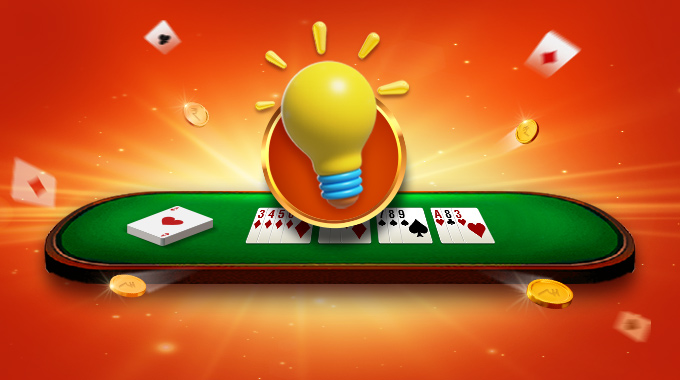Turning Losses into Wins: The Psychology of Learning from Mistakes in Rummy
Every game, win or loss at RummyCircle is an instructional tool for growth. In rummy, like in life, mistakes are inevitable. Still, good players can find insightful teaching moments from these mistakes. This article looks at the psychology of learning from mistakes in rummy and how you can improve your game with these insights.
Understanding Cognitive Dissonance
Cognitive dissonance is the emotional discomfort we get when our behavior contradicts our values. In rummy, this could happen even if you think of yourself as a competent player and experience an unplanned defeat. Change and improvement might be greatly inspired by this discomfort.
Harnessing cognitive dissonance requires realizing the uncomfortable sensation one gets following a loss and then exploiting it advantage-wise. Allow this emotion to motivate you to examine your game and pinpoint areas needing work. Accepting and appreciating this discomfort will help you to open yourself to real learning and development on your life path.
Embracing a Growth Mindset
Psychologist Carol Dweck’s popularized idea of a growth mindset—one which holds that hard effort and dedication can help one increase their abilities—This translates in rummy to seeing every game as an opportunity for learning and development independent of the result.
Approach every game with interest and want to learn something fresh to develop a growth attitude. Pay more attention to the improving process than only to victory. This change of viewpoint helps you to see obstacles as possibilities. Difficult opponents or demanding hands present opportunities to test your abilities and increase your strategy repertory.
Analyzing Mistakes Objectively
Turning setbacks into teaching moments depends on objective analysis. At RummyCircle, we advise players to examine their games objectively, emphasizing facts above feelings. This method makes it easier to know where one might improve. Recording your games is one great tactic. While you examine your games, search for trends. Do mistakes keep coming up across several games?
Developing Resilience
Resilience is the capacity for setback bounce-back. Resilient players in rummy see losses as transient, specific rather than as permanent assessments of their skills. Both long-term success and enjoyment of the game depend on this kind of thinking.
Resilience development depends on one first cultivating self-compassion. After a loss, treat yourself gently; keep in mind that everyone makes mistakes—including seasoned athletes. Emphasize the long game as, unlike overnight improvement, development occurs over time.
Reframing Mistakes as Learning Opportunities
Changing your viewpoint on mistakes will help them to become useful lessons instead of causes of annoyance. On the Rummy Circle app, we encourage players to view every mistake as a stepping stone toward expertise. One very useful instrument for ongoing development is this reframing.
Ask “What can I learn from this?” instead of “Why did I lose?” which might cause self-blame and negativity. This modest change in perspective creates a universe of opportunities for personal development. Think about maintaining a “mistake inventory,” a record of mistakes together with the lessons discovered from everyone.
Implementing Feedback Loops
Constant improvement requires feedback loops. This implies in rummy constantly evaluating your performance and adjusting depending on the results. This methodical approach to learning can help you develop more strategically and speed up your advancement.
First, decide on particular objectives. Instead of hoping vaguely to “get better at rummy,” concentrate on honing specific skills like card counting or melding techniques. Track your development over time using the performance data in RummyCircle.
Understanding the Role of Failure in Skill Acquisition
The learning process is inevitably fraught with failure. In rummy like in other skill-based games, errors are often the best trainers. Adopting this idea can help you to approach the game differently and speed up your learning curve.
Acknowledge that learning new approaches increases the frequency of mistakes. This knowledge will enable you to keep driven when experimenting with fresh approaches. Experiment with several strategies without thinking twice; even if they might not always result in instant results.
Managing Emotional Responses
Rummy requires great emotional control. Learning to control your responses to losses will enable you to keep concentration and make wise decisions in the next games. This ability increases your whole enjoyment of the game as well as your gaming.
During your rummy games, practice awareness. Avoid obsessing over past mistakes or prospective results; stay present and attentive to the present game. Create a pre-game ritual to help you to focus prior to starting. Talk positively of yourself, particularly following a loss.
Setting Realistic Expectations
Unreasoned expectations can cause irritation and impede learning. At RummyCircle, we exchange players to create reasonable objectives and understand that progress takes time. This method guarantees a more fun rummy experience and helps to keep going.
Know how variance affects rummy. Luck can affect short-term outcomes; so, it is advisable not to get very high on wins or too depressed on defeats. Rather, concentrate on improving skills. Create objectives for enhancing particular facets of your game instead of only winning. Celebrate advancement on whatever tiny scale.
Utilizing Mistakes for Strategic Evolution
Every error offers a chance to improve your approach. Your strategy for the game will always be changing if you methodically examine and grow from flaws. Great players from good ones differ in their approach to strategic evolution.
Make a personal playbook compiling effective tactics and lessons discovered from mistakes. Leverage knowledge of losses to modify your approach against different kinds of opponents. Use RummyCircle’s instructional tools to keep current on fresh ideas and approaches.
Conclusion
Ultimately, the path from novice to master in rummy is one of successes as well as failures. At RummyCircle, we think your development as a player defines your response to the blunders rather than their nature. Every loss can be a stepping stone toward success if you use mistakes for strategic evolution. Thus, don’t get demoralized the next time you lose on RummyCircle. Rather, consider it as a priceless chance to hone your abilities and approach mastery one step forward.




